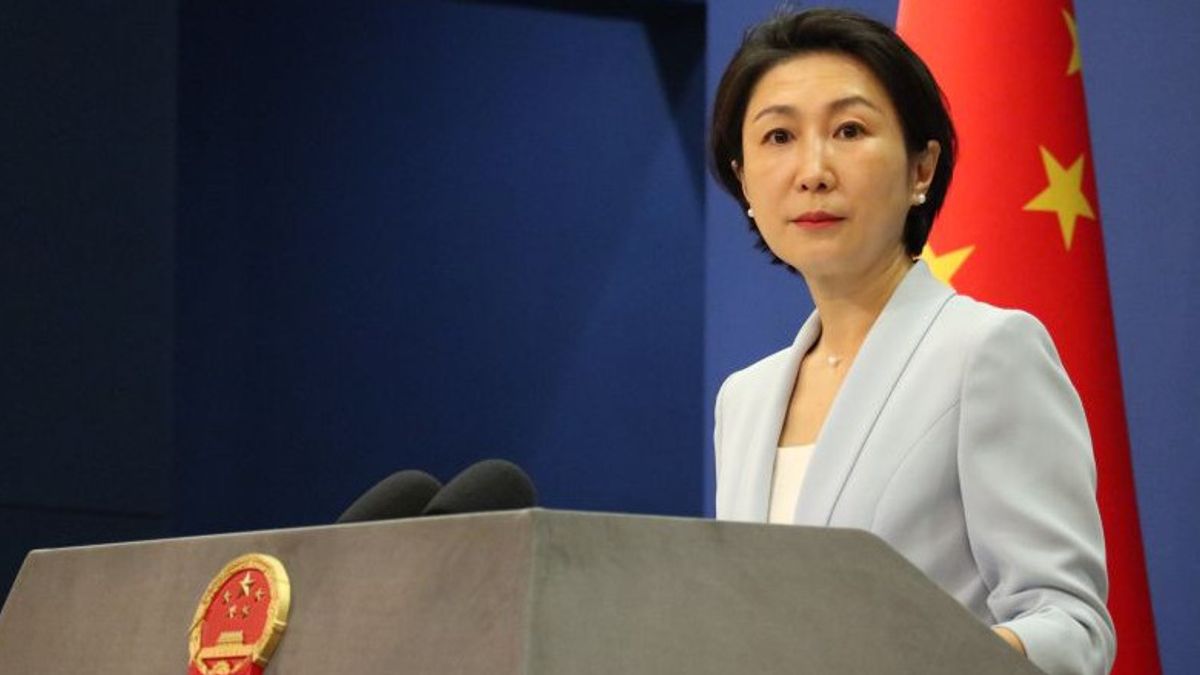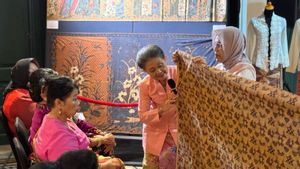JAKARTA - Chinese Foreign Ministry spokesman Mao Ning again asked the United States (US) not to interfere in the collision of the Chinese coast guard ship and the Philippines in the South China Sea.
"The US must stop triggering confrontations in the South China Sea, and stop disrupting regional stability and increasing tensions in the territorial waters," Mao Ning said at a press conference in Beijing, China.
On Monday (19/8), in the early hours of the morning there were two collisions between the Chinese coast guard ship and the Philippine coast guard.
The collision occurred close to Xianbin Reef or Sabina Shoal, called Beting Sabina in the Spratly Islands which is included in the disputed waters of the two countries in the South China Sea.
For this incident, the US Ministry of Foreign Affairs through a statement by Deputy Spokesperson Vedant Patel said the US supported its ally of the Philippines and condemned China's dangerous actions against the Philippine maritime operations in the South China Sea on August 19.
Chinese ships are said to have carried out reckless maneuvers, deliberately colliding with two Philippine coast guard vessels, which caused structural damage and endangered the safety of the crew.
"The US is not a party involved in the South China Sea issue and is not in a position to interfere in maritime issues between China and the Philippines," said Mao Ning.
More than that, the US should not use the US-Philippine Joint Defense Treaty to justify violations of China's sovereignty, rights and interests in the South China Sea.
"What China is doing is responding to activities of violations of the Philippines. We are taking such action to defend our territorial sovereignty and maritime rights and interests. Such action is fair, legal and justified," added Mao Ning.
US Confirmation
Patel said in a written statement Monday (19/8) that the US reaffirmed that Article IV of the 1951 US-Philippine Joint Defense Treaty included armed attacks against Philippine armed forces, public ships, or aircraft, including on Philippine coast guard anywhere in the South China Sea.
Patel said the collision was the latest example from China that used malicious measures and raised escalation to enforce expansionary and unlawful South China Sea maritime claims.
The US calls on China to comply with international law and stop its dangerous and destabilizing actions.
Earlier, Philippine coast guard spokesman Jay Tarriela said the action of the Chinese coast guard ship near Beting Sabina resulted in a collision that caused damage to two Philippine Coast Guard vessels.
Tarriela said the BRP Engano ship suffered a 1.1 meter hole on its right side after a maneuver by a Chinese coast guard at 3.24 a.m. at 43 kilometers southeast of Beting Sabina.
Meanwhile, the Philippine coast guard ship BRP Bagacay was hit twice on both sides by a Chinese coast guard ship at 3.40 am at 39 kilometers northwest of Beting Sabina and suffered minor structural damage.
The crew of the Philippine ship were not injured and continued their mission to re-supply the Philippine-guarded islands in the Spratly cluster.
SEE ALSO:
Whereas in July 2024, China and the Philippines reached a temporary agreement regarding access to logistical supplies for Filipino sailors aboard the BRP Sierra Madre warship as a "floating headquarters" that the Philippines deliberately buried in the Ren'ai Jiao coral reef area, or the Philippines called "Beting Ayungin".
The Chinese government says it has sovereign and jurisdictional rights over islands called "Nanhai Zhudao" in the South China Sea, consisting of Dongsha Qundao, Xisha Qundao, Zhongsha Qundao and Nansha Qundao or better known as Pratas Islands, Paracel Islands, Spratly Islands and Macclesfield Bank areas.
However, since 1999, the Philippines has placed the BRP Sierra Madre warship as a "floating headquarters" for Philippine coast guard on the Ren'ai Jiao reef and sent people to fill supplies at the floating headquarters.
The South China Sea is still a hotspot in the region because China claims almost all the waters in the South China Sea.
ASEAN member countries, namely Brunei Darussalam, Malaysia, Vietnam, and the Philippines also claim the region.
The English, Chinese, Japanese, Arabic, and French versions are automatically generated by the AI. So there may still be inaccuracies in translating, please always see Indonesian as our main language. (system supported by DigitalSiber.id)


















